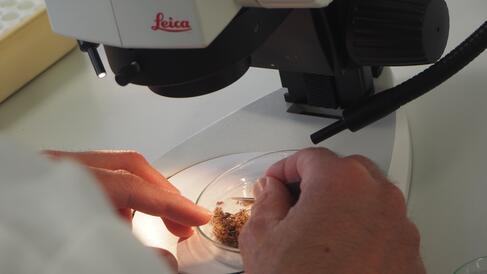Research projects

Much of our work to date has been focused on setting up CHERISH and on the infrastructure upgrades associated with our CapCo award. We have also however continued to develop existing collaborations around collections-based research, in Cambridge and beyond. We have also received news of successful grant applications for projects that will rely heavily on the CHERISH network of facilities and expertise. This is a non-exhaustive list of the research projects and initiatives to which CHERISH contributes:
- An important strand of the Being an Islander project has involved the scientific examination of metal artefacts from Bronze Age Cyprus, which will form part of an exhibition at the Fitzwilliam Museum in 2023
- The Gold of The Great Steppe exhibition, due to open at the Fitzwilliam Museum later in 2021, will rely heavily on scientific analyses carried out by researchers of the Department of Archaeology using CHERISH infrastructure
- As part of the Tools of Knowledge project, researchers at the Department of Archaeology and the Whipple Museum have collaborated on the technical analysis of early scientific instruments, trying to clarify their raw materials, manufacturing processes and geographical origin
- A collaboration between the Fitzwilliam Museum and the Departments of Archaeology and History of Art, the Global Connections project aims at establishing links between the Islamic art collections in the Fitzwilliam Museum and others around the world. The project will focus specifically on the Ades Collection of Persian ceramics and the ornamental decorative casts of the Alhambra
- Research into the materials and techniques of early modern limner Isaac Oliver relies heavily on the wide range of portable equipment available through CHERISH, which allows analysis of miniatures dispersed in public and private collections across the UK
- The ERC-funded Beasts 2 Craft project continues to develop biocodicological approaches to medieval parchment, in a pioneering collaboration between Archaeology and the University Library
- As part of the SeaChanges Marie Skłodowska-Curie ITN, scientific research on the scrimshaw collections at the Scott Polar Research Institute is creating an artefact-based ‘environmental history’ of the London sperm whaling industry
- Researchers at the HKI and the Department of History of Art are working together on a detailed investigation of East Anglian rood screens, which provide a rare opportunity for building a more nuanced picture of the late Middle Ages and early modern period through the integration of object-led technical investigation, archaeological, art historical and cultural research
- A research project in collaboration between the Fitzwilliam Museum, the HKI and the Department of History of Art will investigate the materials and techniques of both panel paintings and illuminated manuscripts produced in Siena in the early 14th century. CHERISH will provide the scientific infrastructure to undertake technical investigations both in Cambridge and in partner institutions in Germany and Italy
